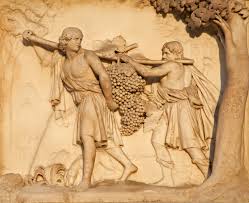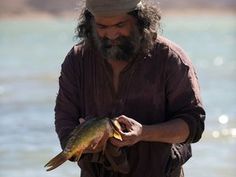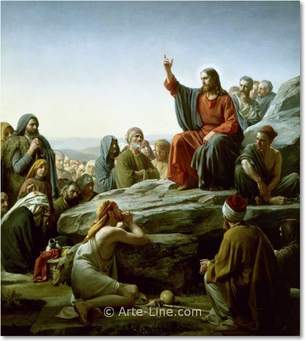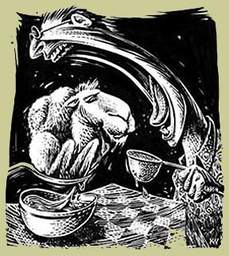Background Passages: Matthew 6:25-34, Luke 12:26-34; John 14:1, Philippians 4:7
The optimism that seems to accompany each new year fades quickly. Most resolutions we make to change the direction of our lives crumble in the reality of old habits and events beyond our control. Within days of our initial optimism we find ourselves mired again in the swamp of anxiety.
Certainly, in our lives and in our world today, we can find reasons to worry without looking very hard.
That could be why many psychologists call our time the “anxious generation.” In New York magazine recently, Jean Twenge, a social researcher from San Diego State University said that anxiety among young people is at an 80-year-high. As bad as it has been since the Great Depression.
Sadly, Christians are not immune to worry, but our faith should provide a buffer to dampen its effect. Jesus said as much during an anxious time for the disciples in the days leading up to his crucifixion.
“Let not your hearts be troubled. Believe in God; believe also in me.” John 14:1
Jesus speaks to the deep trust we must hold in God as we deal with the most difficult times in our lives. But, worry isn’t limited to times of deep crisis, is it? Our tendency is to worry about the little things and the things we cannot control.
I don’t know why Jesus started the conversation we find recorded in Matthew 6 and Luke 12. Scripture doesn’t tell us. It’s not hard to imagine the scene based on the context provided by Luke and Jesus’ introduction to the passage.
Jesus and his disciples just encountered a man who came to Jesus to settle a financial dispute…asking for his inheritance that his brother controlled. He was a man self-consumed, one who could not see beyond his own desires and the things of this world. He asked Jesus to convince his brother to give him his inheritance immediately. Jesus responded with a parable about those who pursue wealth at all costs, even to the detriment of their eternal condition.
The disciples must have wrestled with its meaning, perhaps even expressing their own fears and apprehensions about the struggles of life. Jesus took the time to explain.
“…I tell you, do not worry about life, what you will eat; or about your body, what you will wear. For life is more than food and the body more than clothes…Who of you by worrying can add a single hour to your life?”
Worry changes nothing.
Jesus spoke to them of the ravens who neither planted nor harvested, yet God provided for them. He talked of the flowers that do not labor or spin yet are clothed more beautifully than the finest garments any king might possess. He talked of the grass in the field that is abundant one day and tossed into the fire the next.
At its heart lied an argument that ran counter to the ways of the world.
Anglican Bishop John Taylor Smith of England autographed his books on the inside of the front cover with the same message every time. The last stanza of his poem alludes to the point Jesus made to his disciples in Luke about living lives not consumed by worry. He wrote:
The worried cow would have lived till now
If she had saved her breath.
But she feared her hay wouldn’t last all day
And she mooed herself to death.
When you see the lilies spinning in distress,
Taking thought to manufacture loveliness;
When you see the little birds build barns for store,
That’s the time for you to worry, not before.
Jesus explained it with less whimsy.
“…you of little faith. Do not set your heart on what you will eat or drink; do not worry about it. For the pagan world runs after such things and your Father knows you need them. But seek his kingdom, and these things will be given to you as well.”
The message: If God’s created order takes care of the smallest of his creatures, how much more will God take care of your needs.
Jesus challenged his disciples to trust in God’s provision and worry less about the things that ultimately do not matter. He encouraged them to focus instead on the kingdom of God and their work within it.
The lesson still rings true, even in our fearful and worrisome world.
In a dramatic statement of “do as I say, not as I do,” it seems to me that we worry when we focus on the wrong things. I’m guilty as charged. Matthew’s retelling of this story adds a word that Luke does not include. Jesus concluded his teaching by stating a sad truth about life.
“Do not worry about tomorrow, for tomorrow will worry about itself. Each day has enough trouble of its own.”
No matter how rose-colored our glasses, each day poses its own unique set of problems we must face.
We worry when we quit living in the present…in the now. Worrying about what has already happened is useless. Worrying about tomorrow is fruitless. We stop worrying when we learn to live in God’s will one day at a time. It is this day and what we do with it that matters.
Theologian William Barclay writes that worry and anxiety are basically irreligious…worldly and not spiritual. He said, “Worry is not caused by external circumstances. In the same circumstance, one man may be absolutely serene and another man worried to death. Both worry and peace come, not from circumstances, but from the heart.”
Jesus said much the same thing in Luke as he ended his teaching. He said,
“For where your treasure is, there your heart will be also.”
What my heart desires is my treasure. So what will I desire for today?
I wish I could say I never worry about things, but I do. Those moments slip up on me when I give no thought to faith. When my faith is lacking. When my heart focuses on worldly things. When I’ve treasured something other than my relationship with a loving Father in heaven who I know deep down will provide whatever is needed through every circumstance.
A new year begins. I’ll offer no petty resolutions I cannot keep. Instead, I’ll offer a renewed commitment to the kind of faith that allows me to walk through life circumstances unafraid of any outcome. I commit to putting my faith and trust in God at the center of my heart. With that comes the kind of peace that crucifies all worry and fear. With that comes peace.
“And the peace of God, which transcends all understanding will guard your hearts and your minds in Christ Jesus.” (Phil. 4:7)
That verses speaks to being content with living in the present when every temptation of the world tries to steal our joy. It offers praises to a loving God who will protect my heart and mind from the agony of anxiety. It is my trust in Christ that carries the day.
May this new year bring you peace through the unmeasured grace of God.








